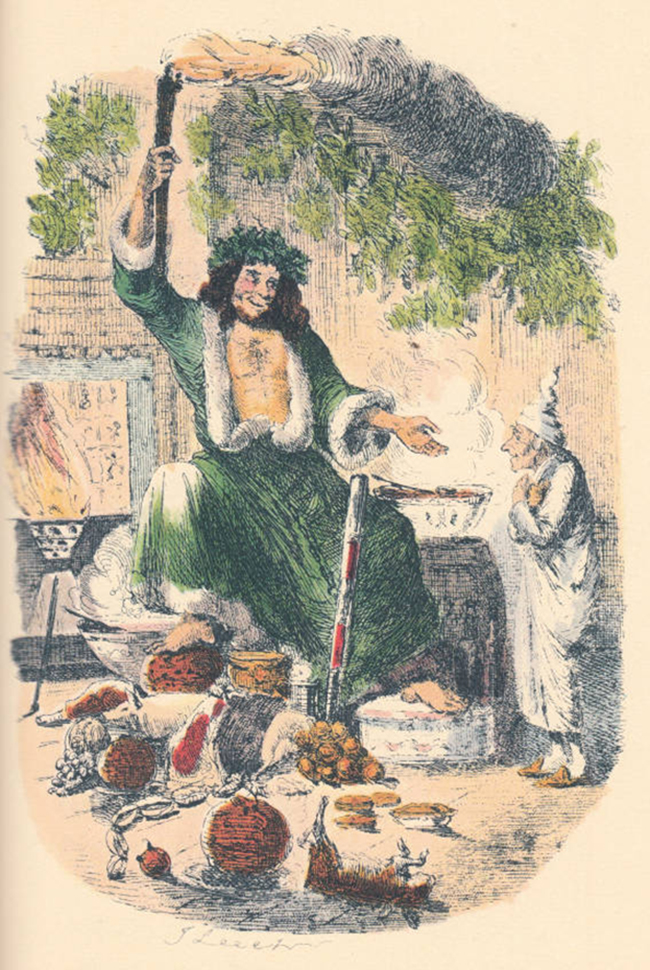
Word of the Day: Genial
Today’s word of the day, courtesy of Merriam-Webster, is genial. This adjective means “warmly and pleasantly cheerful; cordial,” or “favorable for life, growth, or comfort; pleasantly warm; comfortably mild.” According to www.etymonline.com, the word entered the English language in the “1560s, ‘pertaining to marriage,’ from Latin genialis ‘pleasant, festive,’ originally ‘pertaining to marriage rites,’ from genius ‘guardian spirit,’ with here perhaps a special sense of ‘tutelary deity of a married couple,’ from PIE *gen(e)-yo-, from root *gene– ‘give birth, beget,’ with derivatives referring to procreation and familial and tribal groups. Originally used in English in the Latin literal sense; meaning ‘cheerful, friendly’ is by 1746.”
It is interesting to me that the word derives from a Latin word that refers to a spirit, and the same root gives us the words genius and genie, although the latter word actually comes to English through French, and the French word has its own interesting etymology: “used in French translation of ‘Arabian Nights’ to render Arabic jinni, singular of jinn, which it accidentally resembled” (https://www.etymonline.com/search?q=genie).
Today we are less than two weeks from Christmas Day, a holiday that, today, is both secular and religious. While Hallowe’en has become a very popular holiday in the USA, I would guess that Christmas is still most people’s favorite holiday.
One of my favorite things to do at Christmas is to reread (or relisten to) Charles Dickens’s A Christmas Carol in Prose, Being a Ghost Story of Christmas. I don’t reread very many books—The Bible, The Lord of the Rings, The Chronicles of Narnia, maybe a few others—but even those I reread only occasionally. I reread A Christmas Carol every year.
The English word ghost comes from an Old English word that was usually used to translate the Latin word spiritus, meaning spirit. It would have been perfectly understandable had Dickens used spirit or even genius instead of ghost.
I want to share a particular passage, from Stave 3. Dickens divided the novella into five “staves.” A stave in prosody, or the study of poetry, means a division in a poem or a song, like a verse, so it is appropriate for a novel that he calls a Christmas Carol. Here’s the passage:
The sight of these poor revellers appeared to interest the Spirit very much, for he stood with Scrooge beside him in a baker’s doorway, and taking off the covers as their bearers passed, sprinkled incense on their dinners from his torch. And it was a very uncommon kind of torch, for once or twice when there were angry words between some dinner-carriers who had jostled each other, he shed a few drops of water on them from it, and their good humour was restored directly.
….
“Is there a peculiar flavour in what you sprinkle from your torch?” asked Scrooge.
“There is. My own.”
“Would it apply to any kind of dinner on this day?” asked Scrooge.
“To any kindly given. To a poor one most.”
“Why to a poor one most?” asked Scrooge.
“Because it needs it most.” (Dickens, Charles. A Christmas Carol [Wisehouse Classics – with original illustrations] p. 36. Wisehouse. Kindle Edition.)
The ghost or spirit is genial, and the spice he puts upon the food of the dinner-getters is likewise genial.
The image today is courtesy of the Dickens Project. The website says,
Dickens took great care in the appearances of A Christmas Carol, calling for the production of four full-page hand-colored steel engravings and four wood engravings. He employed as his illustrator John Leech, who was one of the best known “comic illustrators” of the time. From existing correspondence, we know that Dickens discussed the illustrations with Leech very carefully. Though we know he approved them, we don’t know if Dickens explicitly told Leech which scenes to illustrate (https://dickens.ucsc.edu/resources/teachers/carol/illustrations.html).
I hope you are having a genial Advent season.